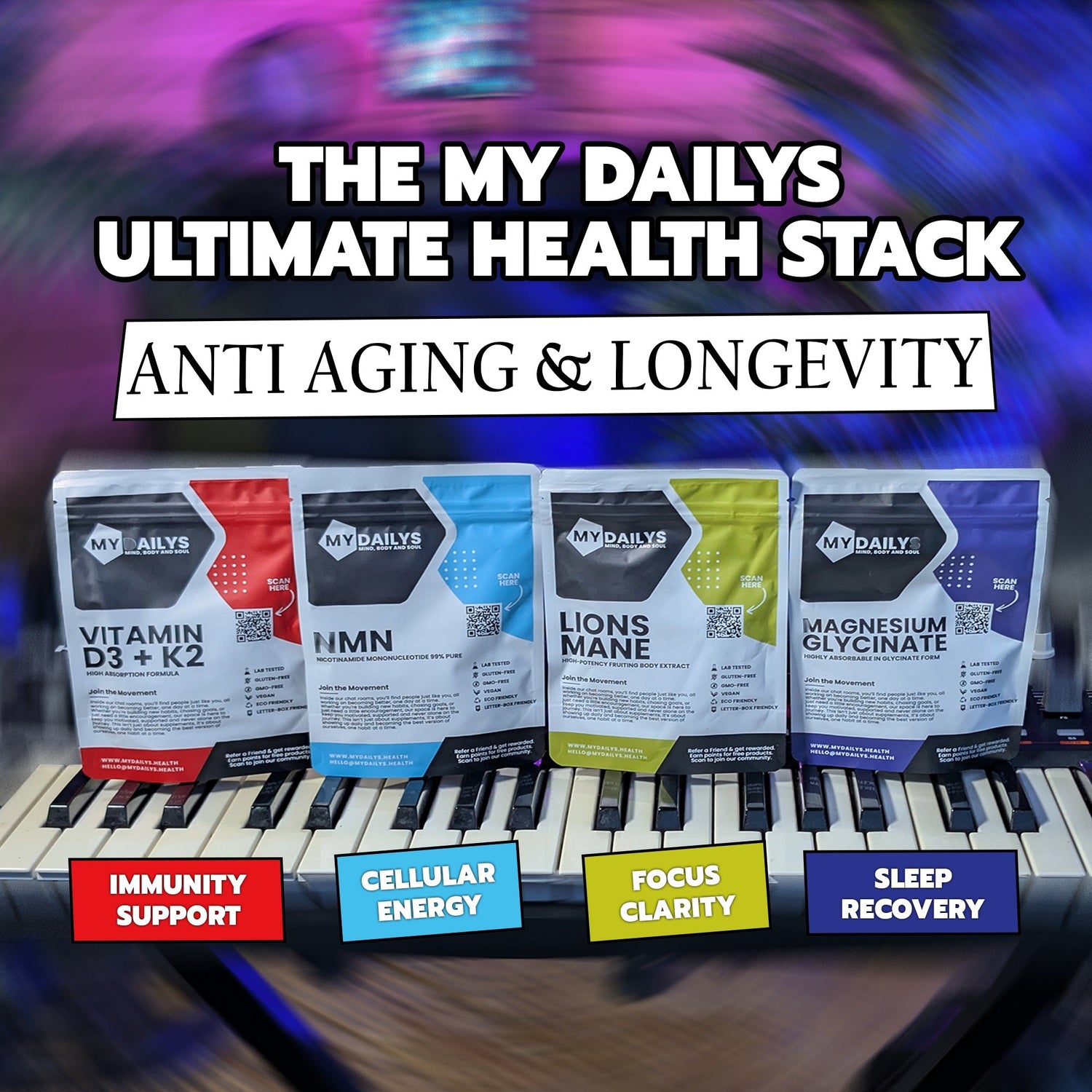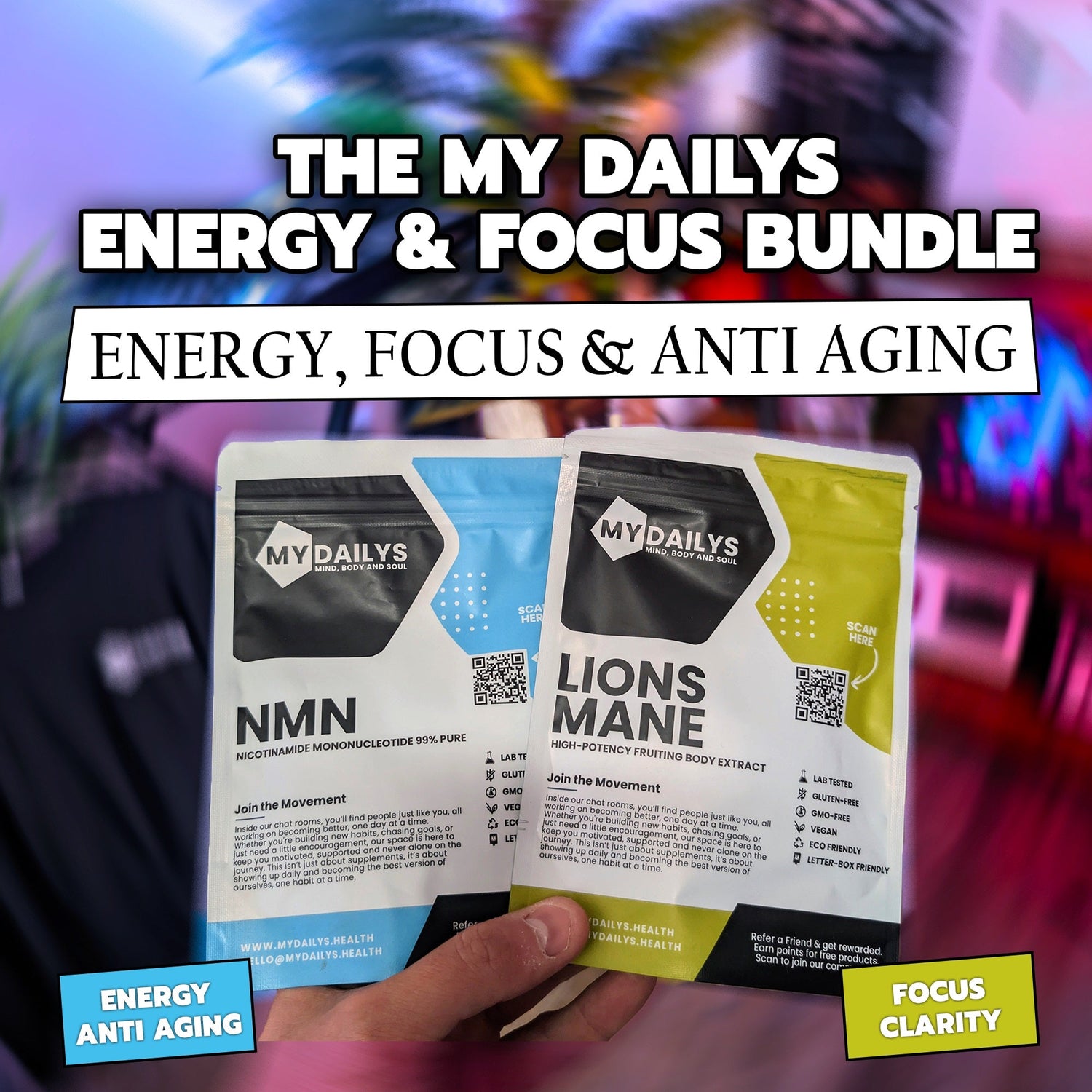NMN: The Latest Research on Anti-Aging and Longevity (What the Science Says)
The quest for a longer, healthier life is as old as humanity itself. In recent years, one molecule has been making waves for its potential role in slowing the aging process and extending our “healthspan” — the years we live free from disease and disability. That molecule is NMN (Nicotinamide Mononucleotide).
At My Dailys, we’re dedicated to bringing you current, credible information to support your well-being. Here’s what the science says about NMN.
The Foundation: Understanding NAD+ and Why It Matters
Before we talk about NMN, meet its vital partner: NAD+ (Nicotinamide Adenine Dinucleotide). NAD+ is essential cellular fuel involved in hundreds of metabolic processes, including energy production, DNA repair, and cellular health.
As we age, NAD+ levels naturally decline. This decline is linked with reduced energy, cognitive changes, and greater susceptibility to age-related issues. NMN is a direct precursor to NAD+, meaning your body uses NMN to efficiently produce more NAD+. Supplementing NMN aims to replenish NAD+ and support healthier cellular function as we age.
The Science Unveiled: What Research Is Showing
Research began with animal models and has moved into promising human clinical trials.
Early Promise from Animal Studies
- Reversing age-related decline: In older mice, NMN improved muscle function, endurance, insulin sensitivity, body-weight regulation and even aspects of vision.
- Healthy lifespan support: Some studies suggest improved markers of healthy aging in animal models.
- DNA repair support: By boosting NAD+, NMN helped activate pathways involved in maintaining genomic integrity.
While animals aren’t humans, these findings created a strong basis to explore NMN in people.
Developments in Human Clinical Trials
- Muscle function & performance: Several trials report improved aerobic capacity or muscle oxygen utilization in older adults engaging in training.
- Insulin sensitivity & metabolic health: Studies suggest NMN may improve muscle insulin sensitivity, supporting glucose handling and overall metabolic function.
- Vascular health: Research indicates potential improvements in arterial stiffness and vascular function, important for cardiovascular health.
- Safety: Across trials, NMN has generally been well tolerated at studied doses, with no serious adverse effects reported.
Common Questions About NMN
- Side effects? Human studies so far suggest NMN is generally well tolerated. As with any supplement, start low and consult a healthcare professional if you have conditions or take medications.
- Dosage? Human trials have used roughly 250–1,000 mg/day. Work with a professional to find what suits you.
- Food sources? NMN appears in small amounts in foods like broccoli, cabbage, avocado and tomatoes — typically too little to meaningfully affect NAD+ levels.
- NMN vs NR? Both are NAD+ precursors. NMN may be a more direct precursor; research comparing them continues.
The Future of Longevity Is Bright
While longer-term human data are still developing, current research is encouraging. NMN stands out as a promising tool to support cellular health and healthy aging.
Explore our high-quality, third-party tested option here: Discover My Dailys NMN Capsules
Disclaimer: This article is for informational purposes only and is not medical advice. Always consult a qualified healthcare professional before starting any new supplement or changing your health routine.














